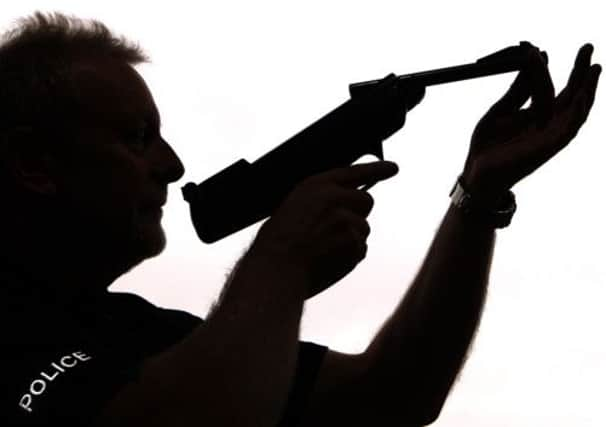Scotland will restrict airguns despite opposition to move


A Scottish Government exercise on proposals for licensing air weapons returned 1,101 responses, with 87 per cent opposed to licensing.
The proposals were described as “misconceived”, “disproportionate”, “draconian” and “heavy-handed” by opponents, some of whom argued that an airgun is not a weapon.
Advertisement
Hide AdAdvertisement
Hide AdNearly three-fifths of the responses came from England, and around a fifth came from cut-out coupons from shooting magazines, according to a government-funded analysis of responses published yesterday.
But these responses “cannot be taken to represent the views of the wider population”, according to analysts.
Shooting is a sport which “is ideal for families, women, the elderly and the disabled”, licensing opponents said.
They argued licensing would be costly, unnecessary for less powerful guns, and could criminalise law-abiding gun owners and drive the trade in airguns “underground”.
Some prospective gun owners may decide to buy more powerful and dangerous guns if less powerful air guns are licensed, according to opponents.
The “politically motivated” proposals would impact on tourism, deter newcomers from taking up shooting and would impinge on personal freedoms, opponents said.
They added the plans should be aligned with UK legislation as cross-border enforcement would be impossible.
The analysis states: “The term ‘air weapon’ was perceived by some to be emotive and misleading. The point was made that a ‘weapon’ is designed to injure or harm someone, and thus an airgun is not a ‘weapon’ unless it is used as such.
Advertisement
Hide AdAdvertisement
Hide Ad“There were also objections to the statement that airgun ownership is ‘uncontrolled’.
Respondents argued that legislation controls the use of airguns very well, and the reduction in airgun offences over the last five years – and the current low level of offences – is evidence of this.”
The minority that supported stricter regulation said airguns are used to injure and kill wildlife, including swans, cygnets and livestock as well as pets.
Some said they had been shot with an airgun. Others said the government’s licensing proposals do not go far enough and called for enforcement, up to and including a full ban.
The analysis says: “Views gathered through an open consultation exercise cannot be regarded as representative of the views of the population as a whole.
“It is generally the case that those with particular expertise or a keen interest in a subject, and the capacity to respond, are more likely to participate in a consultation. It is also the case that those offered a simple means to respond will be encouraged to do so. ”
Justice secretary Kenny MacAskill said: “We have always been clear that licensing will happen and this has been a valuable exercise in highlighting issues and drawing out concerns around our suggested changes.
“It is important that we now consider all views submitted as we continue to develop a system of licensing that is fair, proportionate and practicable for police and shooters alike.
“It is simply not right that in a modern Scotland airguns are available without a licence.”